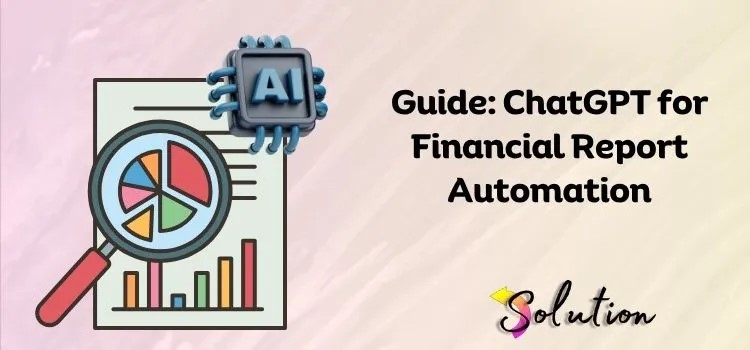
Understanding Smart Accounting in the Age of AI
In today’s fast-paced business environment, smart accounting with ChatGPT is no longer a luxury—it is a necessity. Leveraging the power of ChatGPT and AI-driven tools, modern accounting systems now offer real-time insights, error reduction, cost optimization, and unprecedented scalability.
Smart accounting combines traditional financial practices with cutting-edge AI technologies to automate tasks, predict financial outcomes, and enhance strategic decision-making. ChatGPT, developed by OpenAI, stands at the forefront of this transformation, offering powerful tools to streamline accounting processes.
How ChatGPT Transforms Modern Accounting
1. Automated Bookkeeping and Data Entry
Manual data entry is error-prone, time-consuming, and costly. ChatGPT can be trained or integrated with accounting platforms to automatically record transactions, categorize expenses, and reconcile statements. With natural language processing (NLP) capabilities, it can interpret invoices, receipts, and bank statements to extract and organize data efficiently.
2. Real-Time Financial Reporting
ChatGPT can generate real-time financial reports such as balance sheets, profit and loss statements, and cash flow analyses simply through natural language commands. Instead of waiting days for report compilation, businesses can query ChatGPT for instant summaries or in-depth reports, enabling faster decision-making.
3. Expense Tracking and Forecasting
AI-driven accounting tools powered by ChatGPT can analyze spending patterns and predict future costs. With access to historical data, ChatGPT can:
-
Identify unnecessary expenses
-
Highlight cost-saving opportunities
-
Forecast future cash flow and budget needs
This predictive capability enables smarter resource allocation and proactive financial planning.
4. Enhanced Compliance and Tax Assistance
Accounting regulations are complex and ever-changing. ChatGPT helps ensure compliance by:
-
Flagging discrepancies in financial records
-
Providing up-to-date tax advice
-
Generating tax summaries for filing
-
Assisting with audit preparation
By maintaining detailed logs and offering instant regulatory guidance, it reduces the risks of penalties and ensures alignment with local and international financial laws.
5. Seamless Integration with Accounting Software
ChatGPT can integrate with leading platforms like QuickBooks, Xero, Zoho Books, and more. Through APIs and custom integrations, it enhances these tools by offering intelligent recommendations, automated responses, and data-driven insights, all within the same ecosystem.
Use Cases: Smart Accounting in Action
Small Business Accounting
For small businesses with limited resources, ChatGPT acts as a virtual financial assistant, managing everything from invoice generation to monthly reconciliation. It helps entrepreneurs understand their finances without needing a full-time accountant.
Enterprise-Level Financial Analysis
Large corporations benefit from ChatGPT’s ability to process massive datasets, identify financial anomalies, and generate comprehensive reports across departments. It brings consistency, transparency, and real-time collaboration to enterprise accounting systems.
Freelancers and Independent Professionals
Independent contractors often juggle multiple clients and projects. ChatGPT simplifies financial tracking by:
-
Logging hours and payments
-
Sending reminders for unpaid invoices
-
Generating monthly earnings summaries
This empowers freelancers to stay on top of their finances without relying on expensive services.
Benefits of Smart Accounting with ChatGPT
Reduced Human Error
AI minimizes manual intervention, significantly reducing errors in entries, calculations, and reporting.
Time Efficiency
Automating repetitive tasks like invoicing, data entry, and reconciliation allows teams to focus on strategic initiatives.
Cost-Effective
By handling multiple accounting tasks, ChatGPT reduces the need for a large accounting team, cutting operational costs.
Scalability
Whether managing a single business or a global enterprise, ChatGPT’s capabilities scale effortlessly to meet growing demands.
Data Security and Integrity
With encrypted systems and secure APIs, integrating ChatGPT ensures that financial data remains safe and tamper-proof.
Best Practices for Implementing ChatGPT in Accounting
Train ChatGPT on Industry-Specific Data
For maximum accuracy, businesses should feed ChatGPT industry-specific financial data, terminology, and reporting formats. This customizes the AI’s responses to align with organizational needs.
Regularly Audit AI Outputs
Despite its precision, ChatGPT should be monitored. Regular audits of AI-generated outputs ensure financial accuracy and regulatory compliance.
Integrate with Financial Dashboards
To centralize data and insights, integrate ChatGPT with custom dashboards that visualize KPIs, cash flow trends, and budget variances in real-time.
Educate Teams on AI Capabilities
Training employees to interact effectively with ChatGPT ensures maximum utilization of its features. Encourage natural language queries for day-to-day operations.
Future Trends: Where is Smart Accounting Headed?
Voice-Activated Accounting
Voice assistants integrated with ChatGPT are enabling users to request reports, check budgets, and even approve transactions through voice commands, making accounting truly hands-free.
Hyper-Personalized Financial Insights
ChatGPT will evolve to offer personalized financial recommendations based on user behavior, industry trends, and market shifts, delivering context-aware guidance.
Blockchain Integration
Pairing ChatGPT with blockchain will ensure immutable financial records, enhanced audit trails, and greater transparency in transactions.
Why Businesses Must Embrace AI-Powered Accounting Now
The business landscape is evolving rapidly, and financial agility is crucial for survival. Embracing ChatGPT in accounting allows businesses to:
-
Stay competitive in a digital-first economy
-
Reduce operational costs and increase efficiency
-
Adapt to regulatory changes swiftly
-
Gain deeper insights for strategic growth
Organizations that fail to adopt smart accounting tools risk being outpaced by AI-enabled competitors who can respond faster, smarter, and more effectively to financial challenges.





